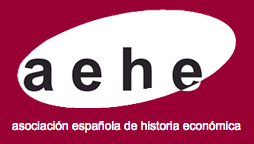Flour millers: Organizations, markets and investing uneasiness of businessmen in Old Castile and Leon, 1820-1868
DOI:
https://doi.org/10.1016/j.ihe.2016.06.003Keywords:
Flour milling, Old Castile, Cuba, Emtrepreneurship, N44, N83, N63, N73, N76, N86Abstract
This paper defends the thesis that around flour businesses, in the middle decades of the nineteenth century in Old Castile, companies emerged that were comparable in size, organization and investment propensity of their owners. The sector was characterized, from a business point of view, by high horizontal and vertical concentration. That is, flour companies were strong and highly diversified but they maintained their family nature. There were no major distinctions between business and family. They were therefore very vulnerable, which is why they fell victim to the 1864 financial crisis. However, their mere existence belies the idea that modern forms of capital groupings and competition were inexistent since they acted as market suppliers during the first industrial revolution in this region.Downloads
How to Cite
Issue
Section
License
Aquellos autores/as que tengan publicaciones con esta revista, aceptan los términos siguientes
- Los autores/as conservarán sus derechos de autor y garantizarán a la revista el derecho de primera publicación de su obra, el cuál estará simultáneamente sujeto a la Licencia de reconocimiento de Creative Commons Reconocimiento-No comercial-Sin obra derivada 4.0 Internacional que permite a terceros compartir la obra siempre que se indique su autor y su primera publicación esta revista, y no permite hacer uso comercial de la misma ni tampoco obras derivadas.
- Los autores/as podrán adoptar otros acuerdos de licencia no exclusiva de distribución de la versión de la obra publicada (p. ej.: depositarla en un archivo telemático institucional o publicarla en un volumen monográfico) siempre que se indique la publicación inicial en esta revista.
Plagio y fraude científico
La publicación de un trabajo que atente contra los derechos de propiedad intelectual será responsabilidad de los autores/as, que serán los que asuman los conflictos que pudieran tener lugar por razones de derechos de autor. Los conflictos más importantes pueden darse por la comisión de plagios y fraudes científicos.
Se entiende por plagio:
- Presentar el trabajo ajeno como propio.
- Adoptar palabras o ideas de otros autores sin el debido reconocimiento.
- No emplear las comillas u otro formato distintivo en una cita literal.
- Dar información incorrecta sobre la verdadera fuente de una cita.
- El parafraseo de una fuente sin mencionar la fuente.
- El parafraseo abusivo, incluso si se menciona la fuente.
Las prácticas constitutivas de fraude científico son las siguientes:
- Fabricación, falsificación u omisión de datos y plagio.
- Publicación duplicada.
- Conflictos de autoría.





